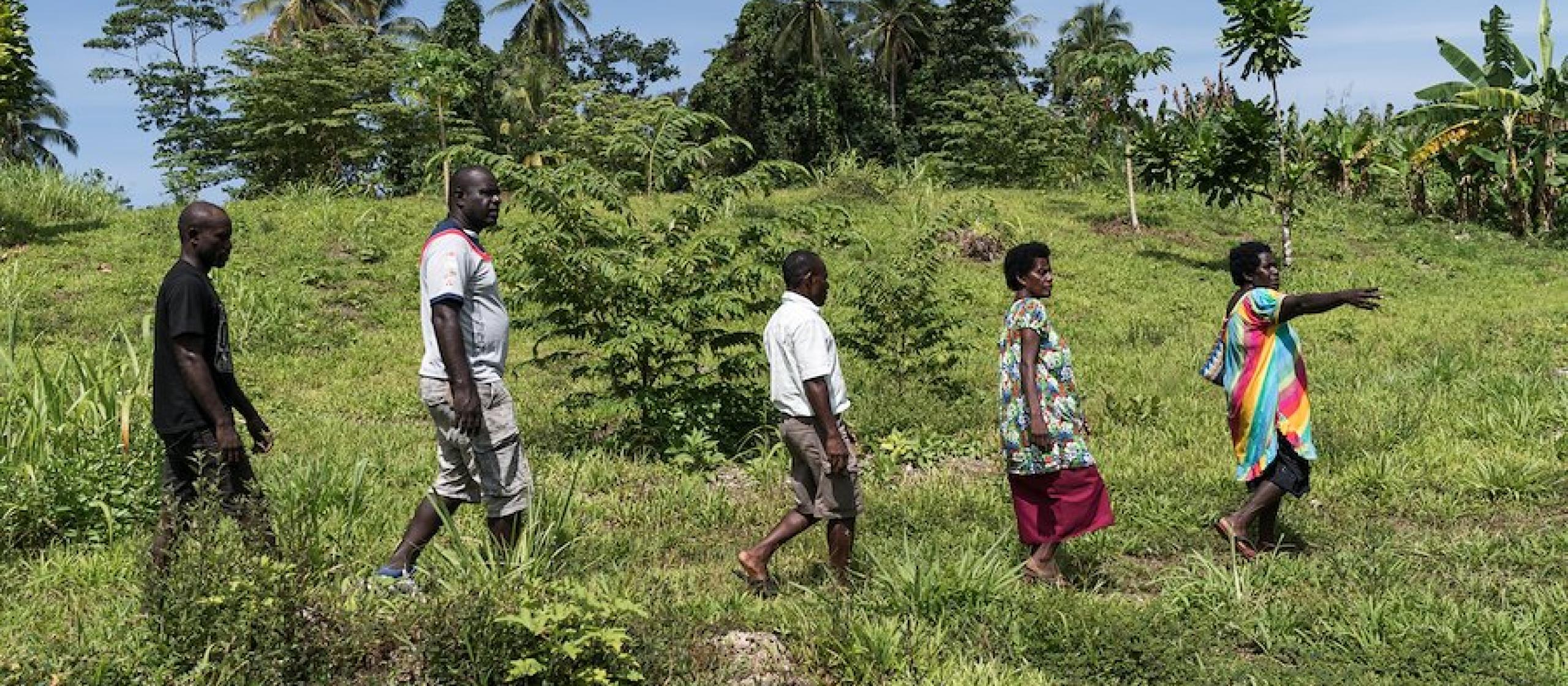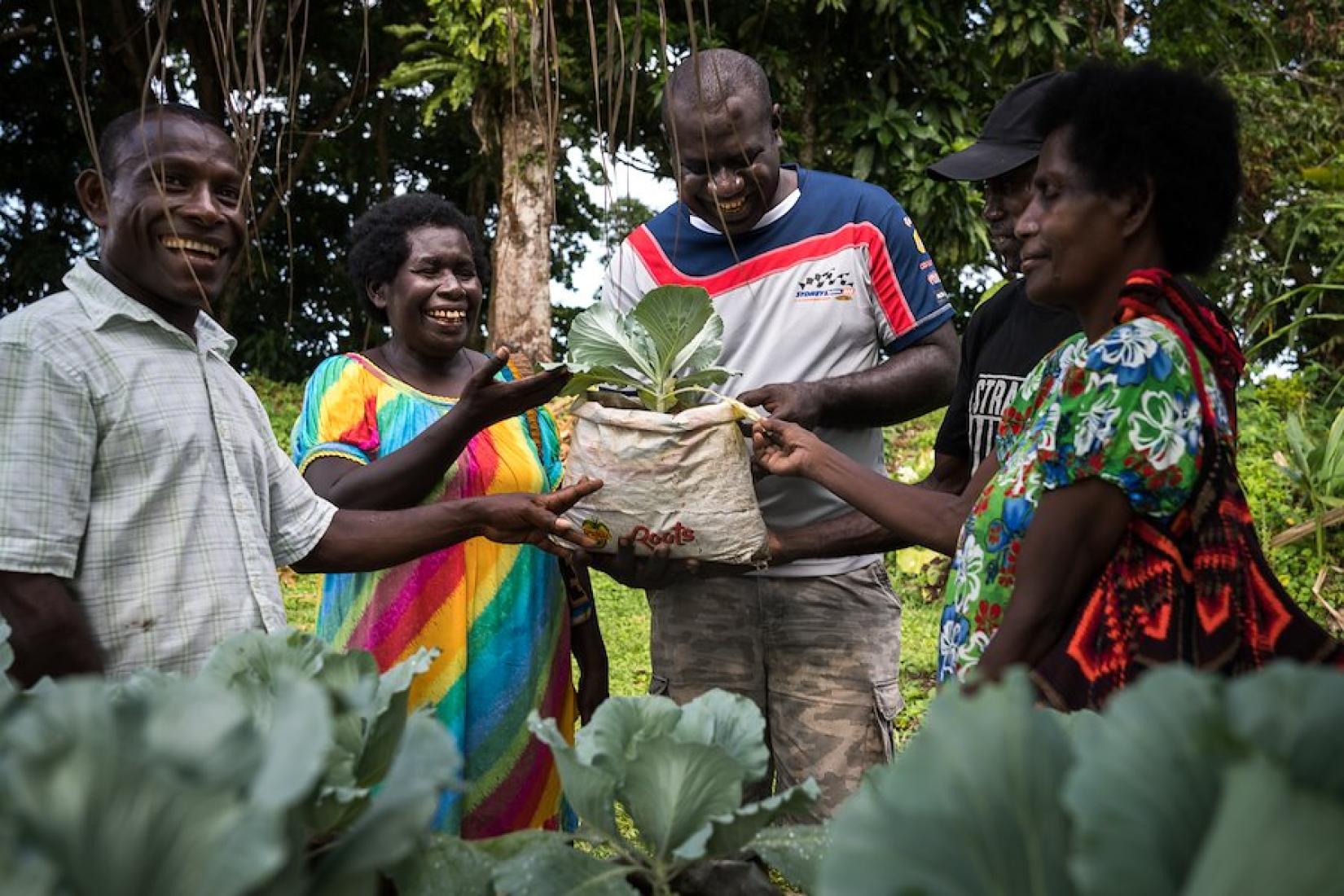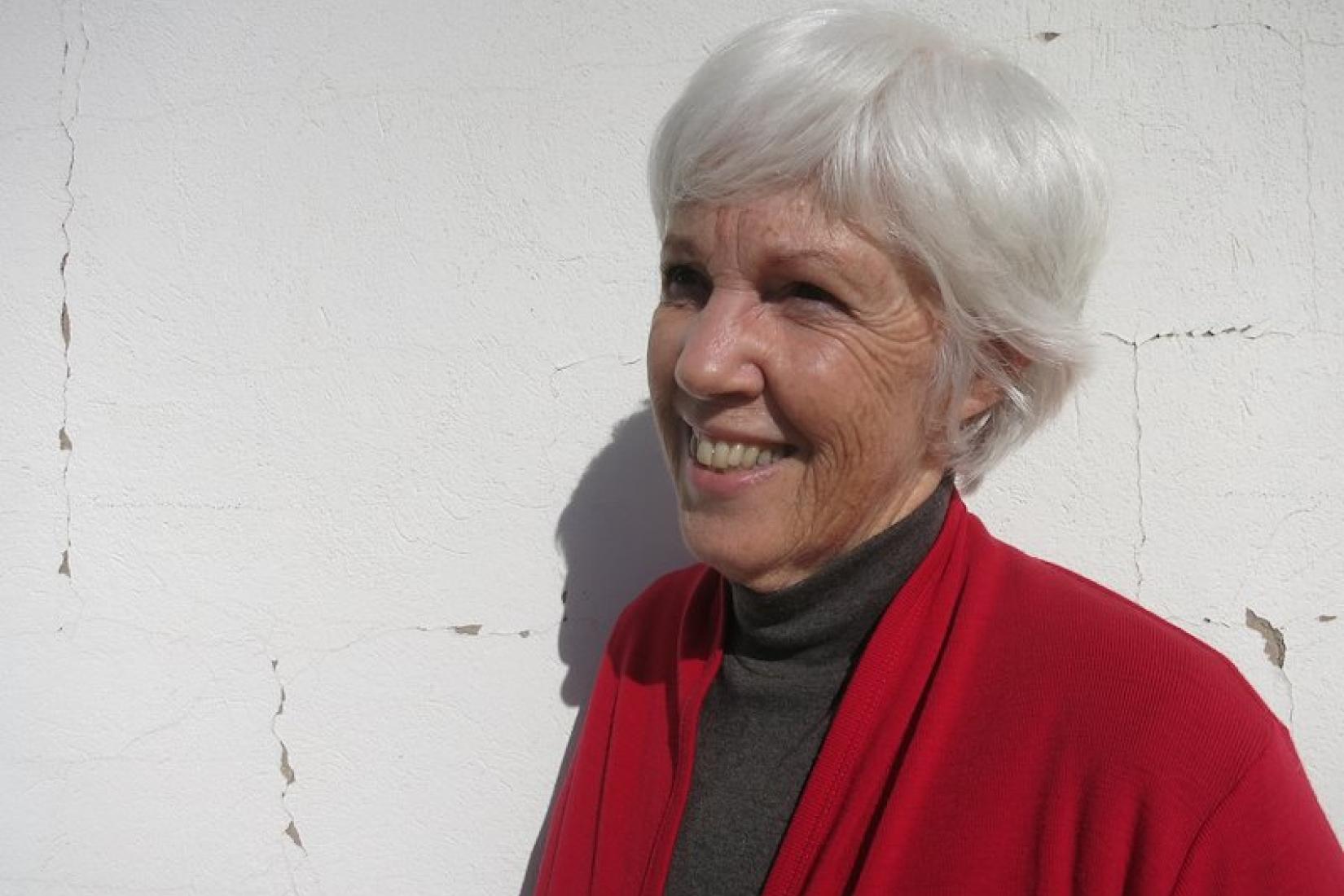A major breakthrough came in viewing each family’s agricultural work as a ‘farm business’. Annual farm plans were drawn up to ensure that harvests would be planned to meet agreed family goals and withstand climate events. Corporate terminology was introduced: ‘husbands and wives’ became ‘company directors’.
‘It was all with a view to moving families beyond a subsistence mindset,’ says Professor Pamphilon. ‘Most PNG families are big, they often have a husband and wife, a grandparent or two, adult children, younger children, and their crops are diverse including sweetpotato, coffee or cocoa, greens, fruit, poultry and pigs, with gardens both near the house and far away. These were all what we, in the Western world, would definitely call small businesses. This shift of terms helped farmers to be proud and productive.’
The project reaped impressive outcomes. Following a pilot in East New Britain and the Western Highlands, it has since been rolled out across the country, including islands like Bougainville and New Ireland. Partnerships were forged with local organisations including the National Agricultural Research Institute, Baptist Union, Bougainville Women’s Federation, New Ireland Department of Primary Industry and Voice for Change, as well as with the Pacific Adventist University and the PNG University of Technology.
For families, outcomes have been tangible. Many went from bush huts to having permanent houses within 18 months. Children were able to stay in school. This approach has been integrated into a major project of US$50 million recently awarded to the Fresh Produce Development Agency by the International Fund for Agricultural Development and the PNG Government which aims to reach 25,000 farming households in four provinces.
Despite some initial reservations about the program, many men were quickly won over. Not only did they see tangible outcomes for their families—permanent homes, education, clothes, increased incomes—but they felt less pressured when they were able to make decisions as a team with their wives.
‘I always share Australian situations as part of my work because we all face gender challenges across the world,’ Professor Pamphilon says. ‘And we can learn from each other. It only took for me to explain the increased rates of male suicide among Australian farmers to underscore the importance for both men and women of working as a family farm team. A problem shared is a problem halved.’
Learn more about Examining women's business acumen in Papua New Guinea: Working with women smallholders in horticulture





